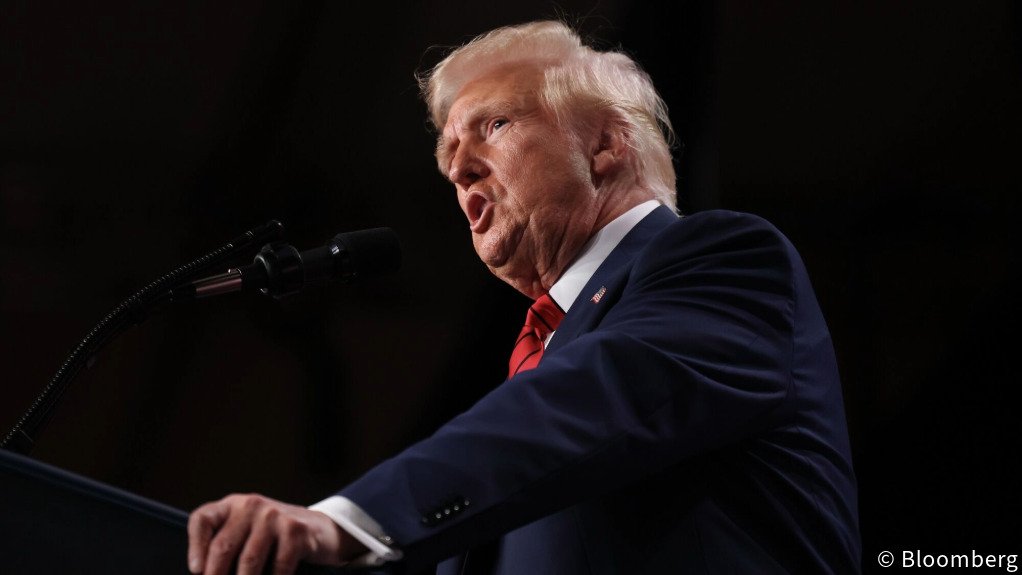The content on this page is not written by Polity.org.za, but is supplied by third parties. This content does not constitute news reporting by Polity.org.za.
The FW de Klerk Foundation acknowledges the challenges posed by the United States' decision to impose a 30% punitive tariff on South African exports. The move is set to have far-reaching consequences for various sectors, particularly those that rely heavily on trade with the US. This tariff will likely lead to job losses, especially in the agriculture, automotive and textile industries, with estimates suggesting that around 30 000 jobs are at risk. Unfortunately, the youth demographic will bear the brunt of these consequences, given the persistently high unemployment rate of 46,1% among young South Africans.
Section 22 of the Constitution of South Africa guarantees every individual the right to freely choose their occupation or profession. However, for many young South Africans that right is hindered by a lack of opportunities in the formal job market. The impact of these tariffs could exacerbate the already precarious situation for youth employment, particularly as industries that provide entry-level jobs are set to suffer. The ripple effect of job losses will further stretch the fragile social safety net and increase the economic challenges facing young people.
In response to this crisis, it is critical that the youth are placed at the centre of discussions on diversification and innovation. As the government pushes for diversification of South Africa’s export markets, new opportunities in Africa, Asia and the Middle East must be harnessed. These regions represent high-growth markets that could serve as a lifeline for South African producers. However, access to these markets requires concerted efforts to develop infrastructure, improve competitiveness and build resilience in the face of adversity.
The FW de Klerk Foundation advocates for a future-focused approach where young people are equipped with the skills and opportunities needed to thrive in an evolving global economy. To this end, the government must expedite efforts to develop new trade partnerships, especially within Africa through the African Continental Free Trade Area (“AfCFTA”), as well as with emerging markets in Asia and the Middle East. In these regions, South Africa's agricultural exports such as citrus and wine, as well as the automotive sector, could find new demand, offering significant growth potential.
International examples show the importance of market diversification in supporting economic resilience. For instance, Brazil's pivot towards China and other emerging markets after facing trade barriers with the US proved successful in ensuring sustainable economic growth, while South Korea’s trade agreements in the Middle East and Africa expanded its export capacity. These international models offer valuable lessons on the importance of strategic alliances and market diversification.
Looking forward, the FW de Klerk Foundation calls on the South African government, business sectors and civil society to work together to ensure that the youth are not left behind in the pursuit of these new opportunities. The establishment of an Export Support Desk is a positive step towards helping businesses explore alternative markets, but more must be done to ensure that young people are equipped with the tools to take advantage of these shifts. This includes targeted youth economic empowerment programmes, skills development in high-growth industries and greater access to mentorship and entrepreneurial networks.
The Foundation urges the government to invest in long-term initiatives that will provide the youth with viable career pathways, not only in trade and industry, but also in emerging sectors such as technology, green energy and innovation. This can be achieved by aligning education systems with the demands of a diversified economy and encouraging entrepreneurship as a viable alternative to traditional employment.
The youth must be central to any plans for export diversification and economic advancement. It is only by ensuring that the next generation has access to opportunities in these new markets that we can build a more inclusive and resilient economy.
Issued by Amirah Hassim on behalf of the FW de Klerk Foundation
EMAIL THIS ARTICLE SAVE THIS ARTICLE ARTICLE ENQUIRY FEEDBACK
To subscribe email subscriptions@creamermedia.co.za or click here
To advertise email advertising@creamermedia.co.za or click here











